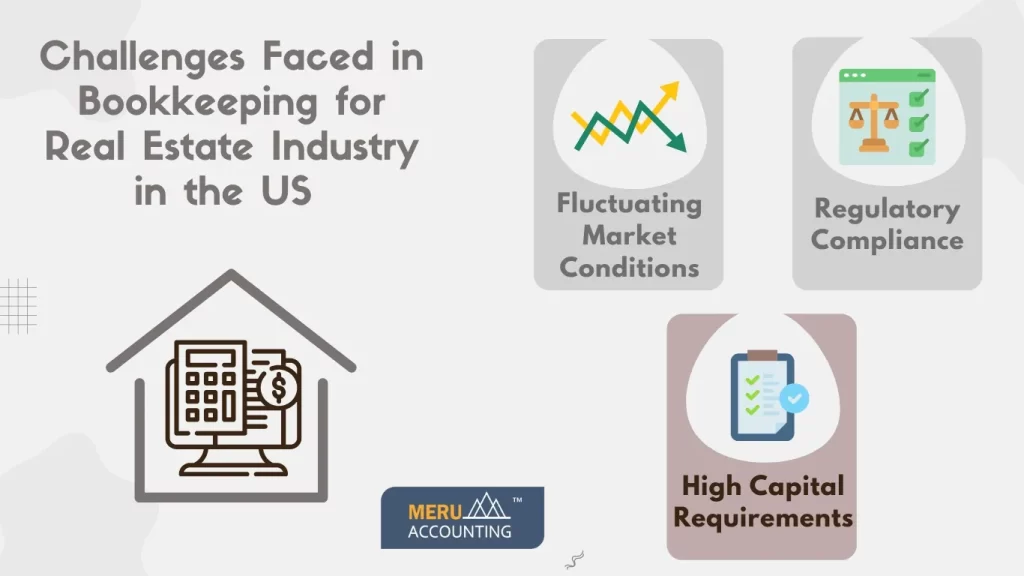
Accounting and Bookkeeping for US Real Estate Owners
The real estate industry stands as a foundation of the United States economy, having an estimated market value exceeding $36 trillion. This multifaceted sector encapsulates a spectrum of activities, including the acquisition, sale, leasing, and investment in diverse properties ranging from residential homes to commercial and industrial real estate. The sheer magnitude of the industry underscores its pivotal role in economic dynamics, influencing employment rates, construction activities, and overall financial stability. Real estate’s impact reverberates across sectors, making it a key player in wealth creation and economic growth.
Understanding Accounting for Real Estate Industry in the US
Before delving into specific tips and strategies for managing finances in the US real estate industry, it is important to have a basic understanding of its financial landscape. This will also help you understand the concept of ccounting for real estate industry. The two primary areas that require financial management are property acquisition and property management.
Property Acquisition: This involves purchasing or investing in properties such as houses, apartments, or commercial buildings. It requires careful consideration of factors such as location, market trends, financing options, and potential returns on investment.
Property Management: Once properties are acquired, they need to be maintained and managed efficiently. This includes expenses related to repairs, maintenance costs, insurance premiums, taxes, and so on. Effective financial management is crucial here as it directly impacts profitability.
Challenges Faced in Bookkeeping for Real Estate Industry in the US
Managing finances in any industry can be complex but there are unique challenges faced by those operating within the US real estate sector:
Fluctuating Market Conditions: The real estate market is constantly changing due to various factors such as economic conditions, interest rates, and demand fluctuations which can make forecasting difficult.
Regulatory Compliance: The US has strict laws and regulations governing investments and transactions within its real estate industry. Complying with these regulations requires proper planning and record-keeping.
High Capital Requirements: Property acquisition and management require significant financial resources, making it challenging for smaller investors to enter the market.
Bookkeeping for real estate industry stands as the only tool to face these challenges. Let’s have a look at the importance of accounting for real estate industry.
The Importance of accounting and bookkeeping for Real Estate Owners
Accurate Financial Reporting:
One of the primary reasons why accounting and bookkeeping is important for real estate owners is because it enables them to accurately report their financials. This is essential for tax purposes, as well as for providing investors or lenders with a clear picture of the company’s financial health.
Budgeting and Forecasting:
In addition to proper financial reporting, accounting, and bookkeeping also allow real estate owners to create accurate budgets and forecasts for their properties. By tracking income vs expenses on a regular basis, they can identify potential cash flow issues or areas where cost-cutting measures may be necessary.
Tax Compliance:
Real estate ownership comes with various tax obligations such as property taxes, capital gains taxes, depreciation deductions, etc. Without proper accounting records, it becomes challenging to accurately calculate these taxes and file returns on time.
Decision Making:
Accounting and bookkeeping provide valuable insights into the financial performance of different properties owned by an individual or company. Real-time data on revenue streams and expenses help owners make sound decisions regarding buying/selling properties or investing in improvements/upgrades that will yield higher returns.
Investor Relations:
For businesses that rely on outside funding sources such as investors or lenders, maintaining accurate accounting records is critical for building trust and credibility. Investors want to see a clear and organized financial picture of the company before they commit their funds. Bookkeeping helps keep track of all transactions and provides an accurate representation of the company’s financial health.
Effective financial management is essential for success in the complex world of US real estate, which includes managing properties and making wise investments. The need to comprehend the financial environment, manage tax ramifications, maintain accurate records, and practice forecasting and budgeting has been emphasized by this extensive handbook. Meru Accounting can help you lay a strong foundation in managing the complexities of the real estate industry and promoting expansion and profitability in the face of shifting economic conditions. Our accounting for real estate can help your business gain a significant edge in the competition.
FAQS
- What is the estimated market value of the US real estate industry?
The US real estate industry boasts an estimated market value exceeding $36 trillion, solidifying its role as a cornerstone of the nation’s economy.
- What are the primary areas requiring financial management in real estate?
Financial management in real estate encompasses property acquisition and property management. Property acquisition involves factors like location, market trends, financing options, and returns on investment. Property management includes expenses related to repairs, maintenance, insurance, and taxes.
- What challenges are faced in managing finances in the US real estate industry?
Challenges include fluctuating market conditions, strict regulatory compliance, and high capital requirements for property acquisition and management, posing unique obstacles for real estate professionals.
- Why is accounting and bookkeeping crucial for real estate owners?
Accounting and bookkeeping are vital for accurate financial reporting, facilitating budgeting and forecasting, ensuring tax compliance, aiding in decision-making, and building trust with investors through organized financial records.
- What is the importance of bookkeeping in real estate management?
Bookkeeping is crucial for maintaining a comprehensive financial record, establishing a separate bank account, detailed documentation of income and expenses, utilizing technology for streamlined processes, and maximizing tax benefits through proper record-keeping.
- What are the significant tax implications for real estate owners?
Real estate owners need to be aware of property taxes, capital gains taxes, income taxes on rental properties, depreciation deductions, 1031 exchanges for deferring capital gains taxes, and the importance of seeking professional advice for tax planning.
- What tips are recommended for budgeting and cash flow management in real estate?
Tips include creating a realistic budget, closely tracking expenses, planning for seasonal fluctuations, diversifying income sources, negotiating with vendors, and utilizing technology for effective financial management.
- How can financial planning and forecasting contribute to long-term success in the industry?
Financial planning involves assessing the current financial situation, setting SMART long-term goals, creating a budget aligned with goals, forecasting to anticipate challenges and opportunities, planning for short-term and long-term investments, and ensuring stability through risk management.
- What are common mistakes to avoid when managing finances in real estate?
Common mistakes include not creating a budget, ignoring cash flow, failing to account for all expenses, overleveraging, not planning for vacancies, and lacking diversification in investments.
- How can Meru Accounting assist real estate professionals in financial management?
Meru Accounting provides specialized accounting and bookkeeping services, offering tailored financial solutions, strategic guidance, and expertise to navigate the complexities of the real estate industry, ensuring clients have a strong foundation for long-term success.


